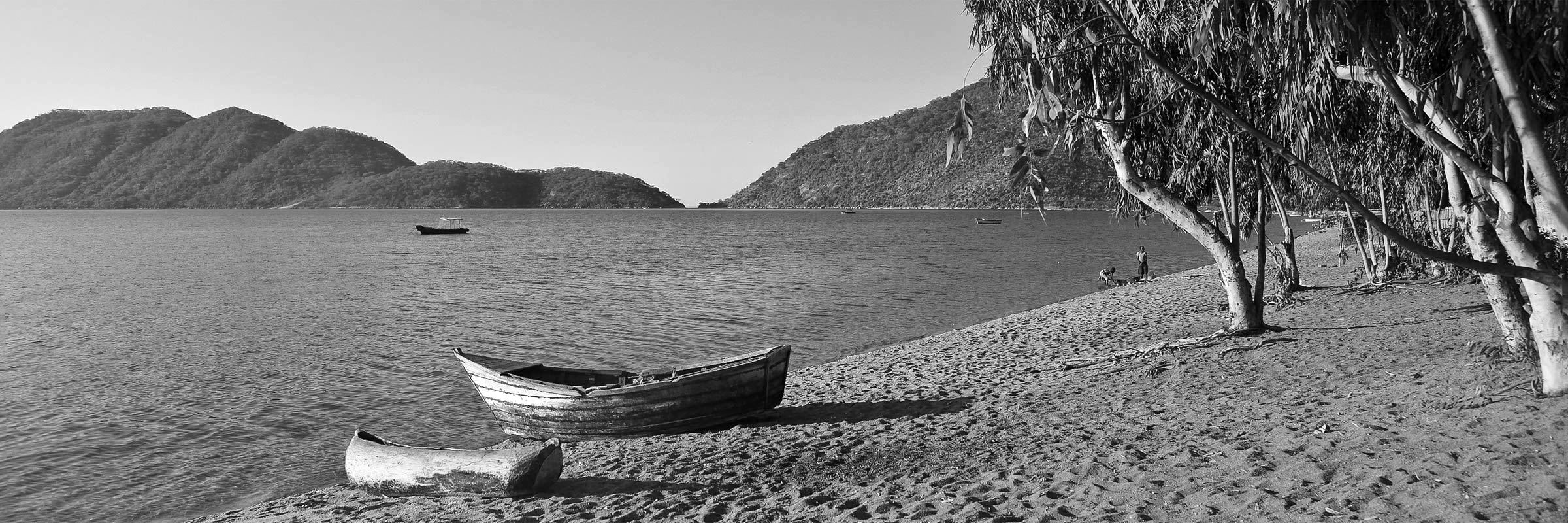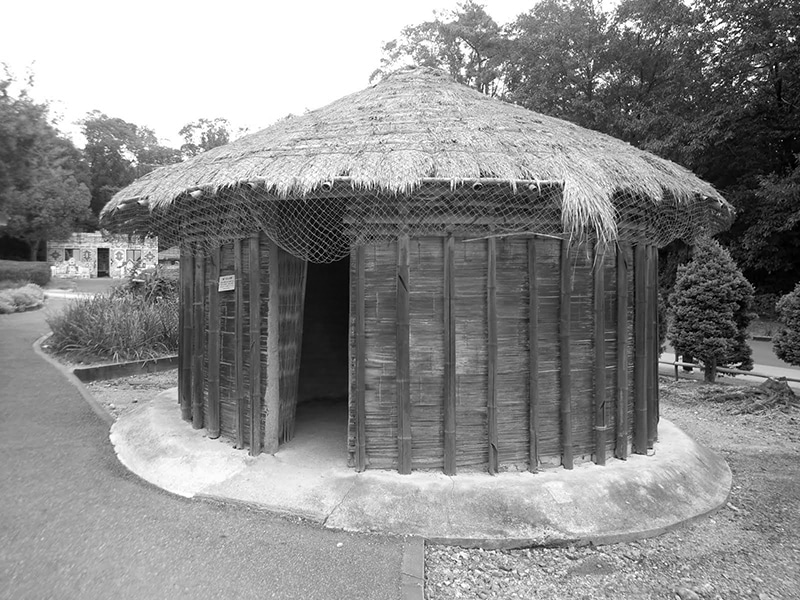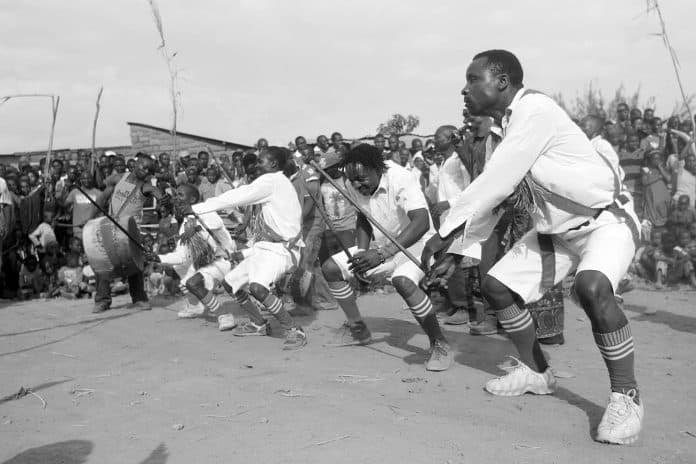Nyakyusa People – History, Culture, Society, Beliefs and More
The Nyakyusa people (also known as Sokile, Nkonde, or Ngonde) are a Bantu ethnic group who dwell in the lush mountains of the southern part of Tanzania in former German East Africa. The Nyakyusa people speak a Bantu language called the Nyakyusa language. The population of Nyakyusa people was calculated to be over 1 million in 1993, with more than 700,000 inhabiting Tanzania. Nyakyusa people are eager agriculturists and highly educated. Nyakyusa people excel where survival and success depend on personal effort. They have amassed huge wealth from agriculture and trade than any ethnic group in Tanzania.
History of the Nyakyusa People
Origins of the Nyakyusa Tribe
According to the oral history of the Nyakyusa people, they trace their source to an old queen of the Nubian people called Nyanseba. A herdsman and warrior kidnapped her. It is claimed that the herdsman turned the leadership of women to men. However, the influence and power of females amongst the Nyakyusa people can be noticed in their customs. A girl takes the name of her father’s clan, while a boy takes the name of his mother’s clan.
Colonial Past
Karonga was founded by the Scots in 1875. By 1889, Harry Johnston’s treaties reduced the spate of regular wars between the Arabs and the chiefs of Konde. A prominent slave merchant known as Mlozi was hanged by the British in 1895. The area was finally made part of the British colony in Central Africa. Karonga was strengthened with fortifications on the lake, and trenches were used to defend it on the three other sides. The fort’s trenches were protected by gates with a solitary Norden machine gun, two cannons, and almost 400 armed indigenes, who were battle-ready even when there was no war. Protected by the fort’s guns, warehouses and administrators were located inside their palisades. Slave raids supposedly have occurred almost within a short distance of Karonga, making the Nyakyusa tribe and other tribes unsure if they should back a European or Mlozi. Around 300 to 400 fighters eventually backed England. The town was crucial as England’s primary support camp for the ‘Stevenson Road,’ that linked Lake Tanganyika to Lake Nyasa, which was falling apart already by 1892 due to paucity of funds.
Unlike the Ngonde of the south, the Nyakyusa people lacked sophistication and had no contact with the world beyond. Their villages were not fortified; they were hardly involved in slavery, ivory, or any other thing east of the Livingston Mountains. The more than 100 chiefdoms remained independent until the Europeans arrived. As warriors, they could repeatedly repel the raids of the Ngoni and the Sangu of Meere.
European Accounts

Travellers from Europe who were attracted to neatness and cleanliness apparently encountered it north of the Nyasa Lake. In Joseph Thomson’s To the Lakes of Central Africa and Back, the Nyakusa people were described thus, “It looked like an ideal Arcadia… think of a well-level plain where garbage, weeds, and other unsightly things are painstakingly cleared off. Many huge sycamores with branches that were almost as big as a whole tree dotted the area. Elegantly neat conical-roofed circular huts occupy every part. These huts have hanging walls, with the mud molded attractively into circular bricks. (This type of hut has always been regarded as typical and normal. However, rectangular huts started dominating as a result of the hut tax imposed by the Germans). The thatched grass is also quite neat, and the ‘tout ensemble’ gives the huts a home in the garden of any nobleman.
In Deutsch Arbeteit am Nyasa, Merensky quotes a preacher thus, “We strolled through splendid groves and beautiful, cleanly constructed huts of the Nyakyusa people. When one thinks about it, the people appear as if they celebrate a festival every single day. They look as clean as though they do not work. You’ll see women and kids picking fallen fruits while the young people and men mostly walk hand in hand. The whole image portrays a charming picture; a picture lovelier than word could ever express.” According to missionary Richard, “one can envision being inside a garden in Lake Geneva.” According to Major von Wissman, “the people are as glad as the typical African – modest and hospitable and have kept dangerous foes off their backs and maintain their independence until now.”
The events of the movie Mother Night occurs amongst the Nyakyusa and Chagga people. The movie is based on the funeral rites of these ethnic groups. After the death of his father, Danny, the protagonist is, by custom, required to copulate with all the seven wives his father left behind.
Konde Uprising
The Germans became displeased with their position in the eastern part of Africa by 1897. There came what can be termed the 1897 Konde Revolt, a three-way feud between the missionaries, military, and some Kinga with the Nyakyusa. Zugfuhrer Bauer, a personal acquaintance of Baron Eltz, was also involved in the conflict. Bauer also knew some of the chiefs and almost all the missionaries. Bauer was known by almost everyone, but few had knowledge of his rank. Charlsey also classifies him as a lieutenant in his book.
Baron Eltz had no local porter at his disposal and decided to relinquish justice administration to clergies in ‘punishment and trifles.’ This action forced affairs to boil over on 2nd December 1893, with Schumann of the Lutheran Missionary writing, “Muambeneke has stolen five cattle on Mt. Rungue. I have attempted to persuade him with no results.” He continues, “On 23rd December 1893, another chief also stole cattle and was allegedly trying to return them. Muambeneke refused to return the stolen cattle, saying he wasn’t even familiar with the white in Rumibra. Also, the protectorate army was yet to introduce itself as the superior adjudicator to the native. No current concept distinguishes between the missionaries and the protectorate army. As far as the indigenes were concerned, they were one and the same. “I have also been accused of passing a judgment while holding a gun. On 8th August 1894, Bauer wrote that Hauptling Makiemba said that if anyone wanted something from him apart from the, then they should come because he was fearful of Lake Nyasa. He continued that he was ready if anyone wanted war. Governor Scheele wrote that no company should be dispatched there provisionally.

Eventually, in October 1894, Bauer reported taking away cattle from Masakiwande and razing the village because of cattle rustling, and although many villagers brought their complaints to be settled, he couldn’t find any to serve as porters. In the ensuing confusion, 10 Askari had to drag Bauer’s. As Bauer heard their grievances, he was abruptly dismissed. On 5th November 1894, Bauer reported that Muarukwa did not agree with returning ten cattle claiming the Europeans in Langenburg knew nothing of it. The problem ended with Bauer burning down the village and carting the cattle away, killing three women and five men in the process.
By 1897, the situation was entirely out of control. Chief Makelimba plotted the killing of two Askari and Bauer, barely escaping. Smelling trouble coming, Bauer left for Germany. By December 1897, a few Kinga chiefs and the Nyakyusas had collaborated to chase all clergymen and whites away from the land. The missionaries didn’t inform the German authorities of the issue early enough. Lieutenant Alpons alleged that he marched with 45 Askari fighters who were waylaid by over 2,000 Konde. The Konde troops were sure of victory that they didn’t utilize their spears. They wanted to strip him of his clothes and place a copper ring on him for mocking their nakedness. Alpons wanted the Konde to work, buy cloth, earn money, and possibly pay taxes. Eventually, the Konde succumbed to superior ammunitions. Missionary Maas reported that he saw more than 28 dead Konde in only one area.
Missionary Bunk of the Berlin Missionary Society and Lieutenant Alpons were entirely blamed for the revolt for failing to notify the authorities. The missionaries asserted that Lieutenant Alpons had intentionally angered the Konde. Consequently, Missionary Bunk was moved to Ubena, while Lieutenant Alpons was removed from the position of district commander.
Nyakyusa Culture and Society
Collectively, the Nyakusa people are thought to be closely related to the Kinga people occupying the Livingston Mountains, who themselves moved westwards as migrants. The nobles governing the area were said to have divine powers. They lived in rigid religious isolation. Their chiefs were strangled by the councilors when they became old or afflicted with illness to maintain fertility, village health, and rain. The chief’s advisors were never his relatives but strictly non-hereditary peasants with great influence over him.
The Nyakyusa people were a colonizing people where survival and success rested on individual efforts. According to the account of M. Wilson, slavery was totally not known in the area around 1892. However, the trade was surely done among the Konde living in Karonga. They dwelled in tiny chiefdoms, not in groups of relatives, but in groups of age-mates attempting to dwell in harmony to avert misfortune.
The Nyakyusa people were willing agriculturists. They practiced intensive plant rotation with yams, millet, sorghum, beans, corn, squash, etc., with plantations of bananas covering miles. Women are not involved in land preparation. The men, helped by their sons, were responsible for hoeing and clearing the land. The harvested produce was used for hospitality, beer, and food, as well as for barter and sale. Neither high status nor old age exempted a man from clearing and hoeing duty. They were afraid of leaving their land uncleared because they were concerned they wouldn’t be able to live without their usual food of bananas, milk, and meat. At the start of the rainy season every year, the Nyakyusa people converge at a site known as ‘Chikungu,’ where the chief Kyungu prays for rain. All the villagers are instructed not to light fires in their houses on the morning of the ceremony. They hold on for the sacred shrine fire known as moto ufya to be shared.
Settlement of dispute by a neighbour or friend is considered highly important. The prince or headman was powerless in enforcing decisions. The most proper way to douse tensions is to find a resolution via group opinions of equals, created prior to adolescence, relying on cooperation, friendship, and assistance.
No descent group or clan had the same name, and after the second generation, kinship ties were often lost. Warfare is hardly mentioned in traditions. However, boundary conflicts were not unusual and could cause fights. Hunters were considered heroes. They hunted to protect lives and properties. However, their weapon selection indicates that they also organized for war. Clergyman Nauhaus was informed of a border disagreement in November 1893 where one man died on one side and six men on the other. Such disputes were not referred to as war, “They told me it only happens so that there will be an issue to discuss.”
The world was dangerous outside the chiefdom. A 25 mile-journey could potentially take more than two days because of the need to take cover often. The problem wasn’t only with unfriendly villages. There were also many elephants, buffaloes, crocodiles, and leopards to contend with. Before the German missionaries arrived, the Nyakyusa simply ‘cast away their dead’ or left them to die at ‘itago.’
Get a test of the Nyakyusa Culture by looking at the following aspects:
Nyakyusa songs – Here is a sample of few songs from Folkways.com
Nyakyusa names and meaning – Behindthename.com is great place to learn the meanings of number of names in Nyakyusa
Learn Nyakyusa Language
Nyakyusa words – https://omniglot.com/writing/nyakyusa.htm
Nyakyusa greetings – https://www.scribd.com/document/13990759/Nyakyusa-Greetings
Nyakyusa translation of various words, download this Nyakyusa dictionary pdf
Nyakyusa bible – Youversion.com Nyakyusa Ngonde New Testament
Societal Life of the Nyakyusa People
The older men dominated the women. They dwelled in their husband’s house, married a decade before the men. They developed few leaders, had no relatives to defend their interests, and lacked solidarity. Missionaries reported widespread marital instability, litigation, divorce, and adultery. The Nyakyusa people were accused of having a ‘senseless’ disposition towards marriage because few ladies of thirty years were still with their first husband as they were quite often with their fifth or sometimes sixth husband. Women spent more than 25 hours fetching wood per week, and only when co-wives were siblings or niece or an aunt were they expected to regularly work together. The missionaries thought the intense competition among the wives to be the man’s favorite was partially responsible for women’s low status. However, their position was still considered higher than other tribes.
Their entire lives were dominated by age groups. Boys protected the cattle and fields. They usually live in different camps when they become ten years old and last a lifetime. Since the women marry before the men, the Nyakyusa paid close attention to incest. This problem was settled by putting fathers and their sons in different villages. Up to 10 or 11 years, the boys protected their father’s cattle in groups. They no longer slept in their father’s houses. Instead, they joined an age-grade village of boys with different laws, customs, and leaders and were usually considered members of two villages. Boys and men were regularly expected to eat with their age-mates and were also encouraged to bring two to three friends home to eat. Parents were often proud when they did this because if a young man came home often to eat alone, his father could spank him or even wound him with a spear. Isolates were not tolerated easily. The following excerpt is from M. Wilson, “This big fool visits my place repeatedly without company. It is good to share your food with friends or move around in groups that include four or five individuals.” It was considered proper, moral, and right not to eat food alone but with friends. It was considered somewhat immoral, inappropriate, and improper to eat with women or juniors. Women ate alone with their unmarried daughters and young children.

Sexual morality revolved around the segregation of sexual activities. “If a boy relaxes or sleeps at home, he’ll hear the things his parents discuss at night because the night is usually filled with lewd talk. He may even see them naked. He’ll grow up a fool.”
Whenever there is a shortage of single girls and an excess supply of young unmarried men, a new settlement is formed to resolve it. A young man could only own his own fields and consume the produce after his wife had moved in with him permanently. Land cultivation required the collaboration of a woman and a man, while more intricate cooking required a woman. A man will keep working in his father’s field and eat in his father’s house until marriage.
When the oldest male child of a chief reaches 33 to 35 years, the father hands over the administration of the community to him in the ‘coming out’ – a celebration of immense pomp. Since the boys now had their chiefdoms, other princedoms were ransacked for food and cattle. They also plundered their father’s bananas, cattle, and milk.
‘Swagger’
Swaggering parades feature dances, feasts, the display of elegant bodies, as well as the physical power of women and men. The display of fine clothes, splendid cattle, and ornaments were part of “swagger.” A father would proclaim ‘swagger first’ if a boy wanted to marry early.
Since a bachelor is regarded as a more powerful warrior than a wedded man, marriages were usually delayed. Although good temper and urbanity were praised, a man’s readiness to go into battle was an important quality useful in war. “We didn’t drive violent men away in the old days because they will fight for us in the future. Swagger displays were considered appropriate for bachelors, although married men also battled with skill without developing a military kingdom. They only raided for their neighbor’s cattle, making the missionaries baffled.
Subsistence
The Nyakyusa people were mainly banana cultivators and herders, with milk and cattle being the most crucial. Small cattle were their biggest pride. They were tied at night and milked by the men only. Women had no role in public life and weren’t allowed to touch the cattle. They were expected to be respectful and obedient and answer ‘yes, my lord’ when addressed. Essentially, men were to totally dominate them. Nonetheless, the missionaries believed they had a position better and higher than that of other tribes. However, cattle for bride price were considered important and gave the men even greater control. Overall, the missionaries believed the position of women in Nyakyusa society wasn’t that bad.
Although the Nyakyusa people were experts at making mats, they didn’t produce pots, salt, cloth, or iron, and their trade stayed very small. They only traded with the Kinga, whereby they exchanged their excess food for quality agricultural implements and weapons. Although the trade in tools and weapons with the Kinga was very important, marrying a Kinga lady was not because Kinga ladies were seen as too unclean to marry.
The steppe murrain outbreak may not have affected their cattle until 1892 to 1896. Protecting the cattle from witches by night and raiders by day was the customary community activity for a long time. People persisted in using bark, animal skins, or home-woven cloth until the German calico was introduced. The power of the chiefs depended on his right to demand high bridewealth for his daughters, demand food as well as the anticipation of entertainment.
It was the practice of the Nyakyusa to work collectively in communal groups, each family doing so at least two to three times per year. From the point of view of the missionaries, the ‘fireside company’ was very important as they stressed the importance of drinking and eating together with friendliness and urban manners. They regarded lively conversations as a discussion among equals, seeing it as an exceptional example of the viable comfort found in African society within a basic Iron Age culture.
Farming is prestigious among the Nyakyusa people. It provided for the hospitality which the Nyakyusa depended on. Great importance was placed on amiability, and men were praised for being good mixers. Huge pressure compelled women and men to farm enthusiastically but not too conspicuous because they must keep in step with their neighbours. The pressure kept the lazy ones on their toes and kept the enthusiastic ones from moving too far ahead of their neighbours.
There were small trades between different tiny Nyakyusa princedoms. Economic ties between princes were flimsy most times. Exchanges were usually within a chiefdom. Usually, there was a level of trade between the different chiefdoms because a state of war always existed among them, whether potential or actual. The incessant civil wars that preceded the Ngoni invasion show the inefficiency of any central authority.
Nyakyusa Belief System
Among the Nyakyusa, there is no notion of punishment and reward in an afterlife. The scope of religion was restricted to this world, mainly dwelling on prosperity and fertility. They were afraid of earthly punishments. According to M. Wilson, “a woman’s infertility was the consequence of her shortcomings, and she would be tormented with guilt.” Punishments and rewards reserved for an afterlife only appeared with the coming of Christianity.
Medicine
Medicines were vital in treating the sick, hunting, winning love, herding, farming, retaliation, or directly harming an adversary and offering protection against witches. It could also be used against an adulterer or thief or placed on fields or houses to bring misfortune. Medicine could be evil or good, illegal or legal, and able to harm or to help.
Spiritual Beliefs
Belief in the existence of witches was relevant among the Nyakyusa people. They believed that some people could fly on pythons to harm cattle and people at night. The witches inherited the pythons as well as their power from one of their parents. Typically, greed was their motivation for harming cattle and men. Pythons covet milk and meat available at the burial of those killed. Sexual dreams were not believed to come from witchcraft despite the fact that the witches were always naked when flying through the air with their pythons.
Certain people in a village were blessed with the ability to see witches and fight them in their dreams. These people were known as ‘defenders’; the most vital one among them was the village headman. The defenders’ power and vision come from the same source as the pythons and witches. The defenders were bound by law and morality. They worked at night through their dreams. They were very powerful, and they used their power to bring wrongdoers to book. They also focused on protecting cattle because everyone lived on beans, bananas, and cattle milk. Although witches could dodge the defenders, they were regarded as pillars of society. The defenders could see and ward off witches and harm them or make their kids fall sick through ‘the curse,’ ‘the breath of man,’ ‘the power of the python,’ or the general opinion of the people. No one admitted to possessing python power because it would be proud, impolite, and boastful.
It wasn’t only the absence of friendliness that stunned people and could bring the ‘breath of man.’ Bad disposition towards in-laws or parents, having kids after a daughter-in-law has attained puberty, swearing at or hitting a husband, and signs of pride and arrogance could all lead to chronic illness. Notwithstanding, the Konde people were generally seen as intelligent and brave people.
Witches are often described as unpopular and isolated, boastful individuals who treated neighbours disdainfully and kept mute in public, as well as gloomy women who didn’t greet other ladies or ask after their kids. Witches hardly struck without reason – they act out of greed or hatred against people they have issues with.
From childhood, most people fear witchcraft, and the fear often lasts their entire life. A man found guilty of witchcraft could be obligated to leave the village or chiefdom. A woman convicted was usually divorced but remarried soon after. Convicted witches were hardly killed because a witch was very valuable in war to be lost to the chiefdom.
When doubts were raised about witchcraft accusations, the ‘Umwafi’ became the means of last resort. If a person didn’t vomit after drinking Umwafi, they are considered guilty. Sceptics claimed that families selected members who could vomit easily. Thus, the ‘Umwafi Ordeal’ was sometimes administered to large groups of people to discover the source of trouble. According to Monica Wilson, the last case occurred in 1932.
For more articles related to Tanzania tribes, click here!


































